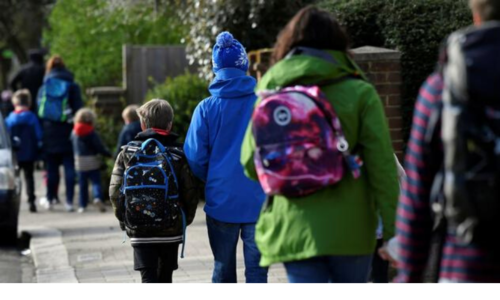Five million babies expected to be born in Pakistan in 9 months since Covid-19 outbreak: Unicef

An estimated 29 million babies will be born in South Asia in the nine months after the Covid-19 outbreak was classified as a pandemic by the World Health Organisation (WHO), while five million births will be reported in Pakistan, according to a report released by the United Nations Children's Fund (Unicef).
The report — released on May 6 — has predicted that an estimated 116 million babies will be born across the world in the 40-week period between March 11 and December 16, with almost a quarter of them in South Asia.
India is expected to report 20 million births, the highest in the region, during this period, the report said, followed by Pakistan, Bangladesh (2.4 million) and Afghanistan (one million).
The report also warned that lockdown measures imposed to curb the spread of the coronavirus may cause disruptions in life-saving health services "putting millions of pregnant mothers and their babies at great risk".
"The continuing rapid spread of Covid-19 across South Asia means new mothers and newborns will be greeted by harsh realities, including global containment measures such as lockdowns and curfews, health centres overwhelmed with response efforts, supply and equipment shortages, and a lack of sufficient skilled birth attendants as health workers [...] are redeployed to treat Covid-19 patients.
"Unicef cautions that although evidence suggests that pregnant mothers are not more affected by Covid-19 than others, countries need to ensure they still have access to antenatal, delivery and post-natal services.
"Likewise, sick newborns need emergency services as they are at high risk of death. New families require care to ensure the health and well-being of mothers, support to start breastfeeding, and to get medicines, vaccines and nutrition to keep their babies healthy," the report said.
The UN body urged governments and healthcare providers to take a few steps to save lives in the coming months by:
- Helping women receive regular checkups during their pregnancy, skilled delivery care and post-delivery care
- Ensuring health workers are provided with the necessary personal protective equipment and priority testing and vaccination for Covid-19 when it becomes available
- Ensuring that all infection prevention and control measures are being followed at health facilities
- Allowing healthcare workers to reach pregnant women through home visits, encouraging women living in rural areas to visit maternal waiting homes, and using mobile health strategies for tele-consultations
- Training, protecting and equipping health workers with kits to attend to home births
- Allocating resources to lifesaving services and supplies for maternal and child health
The report also urged pregnant women to take precautionary measures by practicing social distancing, avoiding physical gatherings and using online health services.
Read: Mothers may pass coronavirus to unborn children, say Chinese doctors
It also advised them to continue breastfeeding their children even if they are infected as "the virus has not been found in samples of breast milk".
"Mothers with Covid-19 should wear a mask when feeding their baby, wash hands before and after touching the baby, and routinely clean and disinfect surfaces," it cautioned.














































